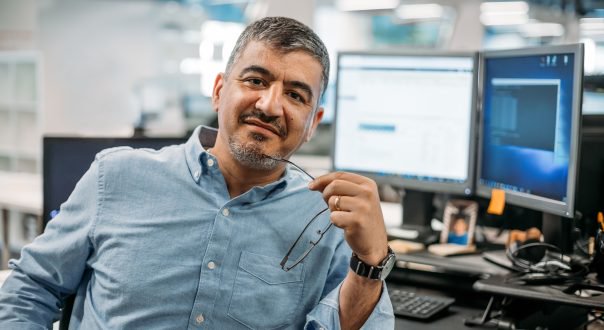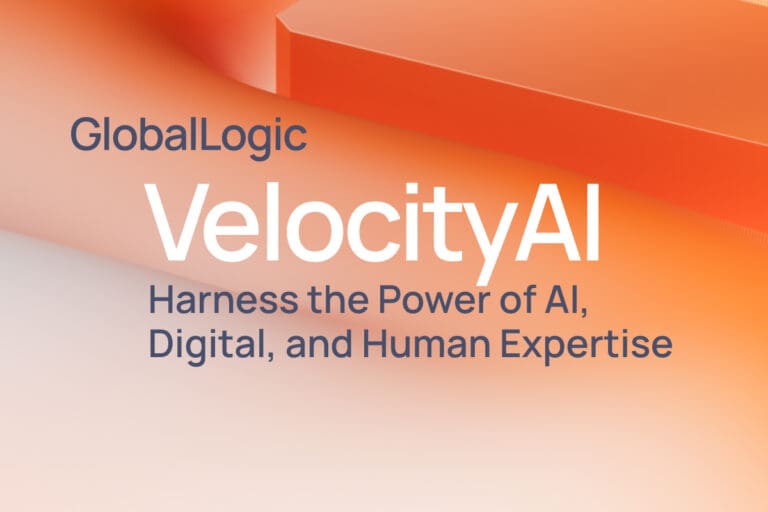- Services
Technology Capabilities
Technology Capabilities- Product Strategy & Experience DesignDefine software-driven value chains, create purposeful interactions, and develop new segments and offerings.
- Digital Business TransformationAdvance your digital transformation journey.
- Intelligence EngineeringLeverage data and AI to transform products, operations, and outcomes.
- Software Product EngineeringCreate high-value products faster with AI-powered and human-driven engineering.
- Technology ModernizationTackle technology modernization with approaches that reduce risk and maximize impact.
- Embedded Engineering & IT/OT TransformationDevelop embedded software and hardware. Build IoT and IT/OT solutions.
- Industries
- GlobalLogic VelocityAI
- Insights
BlogsDecember 16, 2024Gene LeybzonAccelerating Digital Transformation with Structured AI Outputs
This code produces the following output that can be imported into the candidate trackin...
 BlogsOctober 30, 2024Yuriy Yuzifovich
BlogsOctober 30, 2024Yuriy YuzifovichAccelerating Enterprise Value with AI
Discover how financial services integrations are transforming from standalone offerings...

- About Us
Press ReleaseGlobalLogicMarch 11, 2025GlobalLogic Launches VelocityAI to Harness the Power of AI, ...
VelocityAI combines advanced AI technologies with human expertise, helping businesses r...
 Press ReleaseGlobalLogicJanuary 10, 2025
Press ReleaseGlobalLogicJanuary 10, 2025GlobalLogic Announces Leadership Change: Srini Shankar Appointed ...
SANTA CLARA, Calif.–January 10, 2025– GlobalLogic Inc., a Hitachi Group Com...

- Careers
Related Content GlobalLogic25 June 2025
GlobalLogic25 June 2025 GlobalLogic25 June 2025View All Insights
GlobalLogic25 June 2025View All Insights GlobalLogic25 June 2025
GlobalLogic25 June 2025Let's start engineering impact together
GlobalLogic provides unique experience and expertise at the intersection of data, design, and engineering.
Get in touchAI GovernanceMLOpsCross-IndustryThis is probably a well-known fact in sociology or some other such discipline, but it struck me the other day that only the generation that knows how to do something can be the one to make that thing obsolete.Take driving a car, for example. My generation and the ones preceding me in the U.S. eagerly learned how to drive a car as soon as we were legally allowed. Like most of my contemporaries, I started driver’s education as soon as the law allowed, at age 15.5, and had my license in hand as soon as I turned 16 years old. But more recently, the number of Americans receiving their drivers license at age 16 has declined from an already low 46.2% in 1983 to a mere 25.6% in 2018 according to statistic.com [https://www.statista.com/chart/18682/percentage-of-the-us-population-holding-a-drivers-license-by-age-group/]. While not as dramatic a decrease, fewer adults in the US had drivers licenses in 2018 than in previous years.
It’s not inconceivable to me that in a few decades, between the proliferation of ride-sharing services (a technology-driven business model) and self-driving cars (a new technology), relatively few American adults will know how to drive. This is in the country, the U.S.A., that introduced ‘car culture’ to the world.
But today, in 2024, about 91% of American adults still have a driver’s license. And I think that’s a necessary condition for self-driving cars to evolve.
Any new technology will be imperfect. This means that people who know how to use the previous generation of technology are the ones who need to be the pioneers that introduce the next generation. Those are the people who can revert back to the ‘old’ way when necessary, because the ‘new’ way isn’t quite up to some aspects of the task. While my Tesla does some things very well already, I will still over-ride the self driving features when I believe it’s not doing the right thing. But if I didn’t know how to drive, I would be at the mercy of the car—instead of seeing it as an ally and a tool. Except in controlled and limited (or remotely supervised) conditions, I don’t think a non-driver would feel completely safe in even the best of today’s self-driving cars in all circumstances. But for those of us who can already drive, self-driving functionality is a great thing; we can turn it on or off according to the situation and our needs.
There is no doubt in my mind that self-driving cars will be perfected, and will some day soon drive better and more safely in all circumstances than I do. In some specific areas, my ‘self-driving’ Tesla already does a better job than I would. Today’s children—or (if you’re a pessimist) their children—will truly have no need to learn to drive once they become adults. Except for recreation, I doubt if many will bother learning to drive. Driving ‘manually’ will become a forgotten skill.
But for the present, the only way to perfect self-driving cars is to put them in the hands of people who already know how to drive. Only those people with driving skills can “rescue” the algorithms when they don’t work quite right, or can act as trainers and perfecters of the new technology. In other words, only the people who are masters of the old technology can become the pioneers of the new.
I see the same thing happening in the software industry, as we adopt GenAI-driven development tools. There is no doubt in my mind that at some point in the future, GenAI will produce better code, tests, architectures and other software artifacts than we can create manually—and certainly faster. But as in the car-driving example, only those people with the skills to develop systems manually can be the ones to make the new technology successful.
GenAI-based development will predictably have gaps. While there are some areas where GenAI-driven development can add tremendous value already, it does not seamlessly cover the entire software development lifecycle, and won’t for some time. Humans with ‘traditional’ skillsets are very much required to realize the advantages of GenAI-based development.
For this new technology to succeed, the people who know how to develop software the ‘old fashioned way’ will need to make it successful. But why would we do that? We all believe—reasonably, I think—that this new technology will change our work fundamentally. Why would we risk working ourselves out of a job or, at the least, risk changing our current jobs beyond recognition?
My work experience has shown me, time and time again, that those people who try to make themselves indispensable by withholding knowledge are often the first to lose their jobs in any major transition. We can all probably think of a few examples of people who did manage to avoid being let go in a work transformation by hiding ‘secret knowledge’. But what a miserable existence they must have had! Hoarding knowledge and constantly worrying that someone else would displace them by learning what they think makes them valuable. Such behavior reminds me a bit of Golem stroking the one ring and repeating “My precious!”.
While our generation is the current flag bearer for the accumulated wisdom of software development know-how, its techniques and best practices are far from secret knowledge. Countless books, articles, blogs, training courses, examples and other artifacts exist and can be accessed over the web. When AI’s get smart enough, they have ample material from which to learn—as we’re already seeing. Also, there are fortunes to be made from teaching them, and new job opportunities to be created because of GenAI-native development. There’s no way any of us—or all of us—could hold back this tide, even if we wanted to. GenAI will transform the software industry: that is a given. We can argue about ‘when’ and ‘how’, but I don’t think the ‘what’ is in dispute.
Take heart, though. If you love to drive, I think that even in the upcoming era of truly self-driving cars you will have the opportunity. Manually driven cars will still be available, as an option on new or specialized models, for rental to hobbyists, or through the ‘vintage’ market. Similarly, if you love to program, I’m sure you still can. But our generation will indeed be the generation that makes GenAI-native software development a reality. The only question in my mind is: will it be because of some of us? Or all of us?






